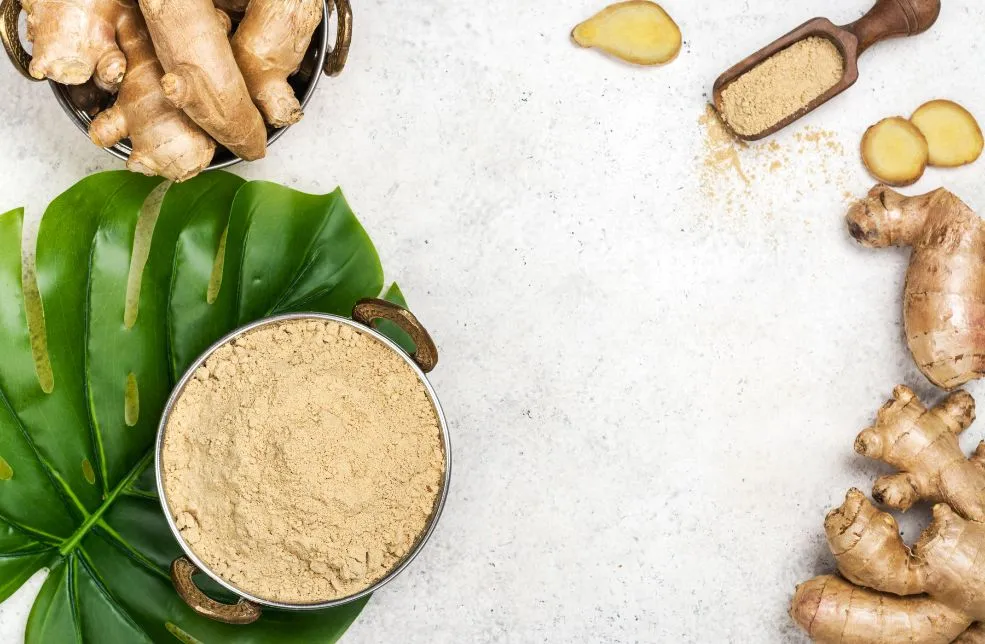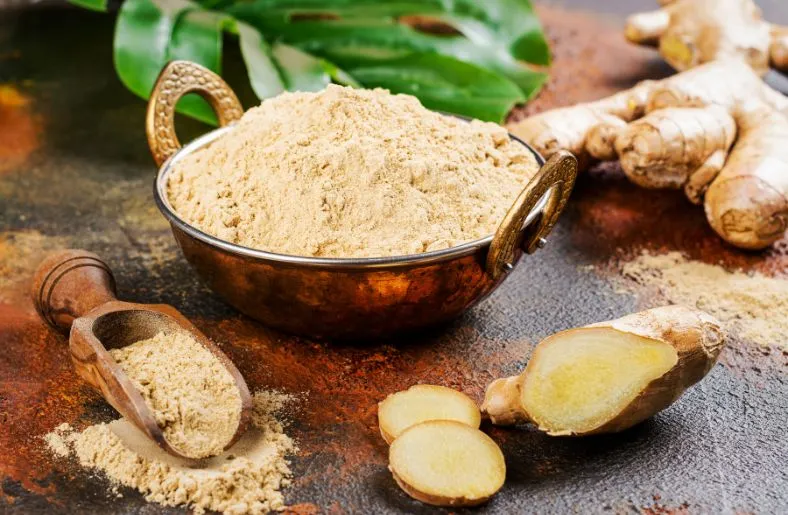Ginger, that aromatic root we often use to spice up our meals, has been a staple in traditional medicine for centuries. From ancient China to modern-day wellness circles, ginger’s medicinal uses have been celebrated and studied extensively.
In this blog post, we’ll dive deep into the world of ginger medicinal uses, exploring how this humble root can potentially boost your health and well-being.
The History of Ginger in Medicine
Before we jump into the specific ginger medicinal uses, let’s take a quick trip down memory lane. Ginger has been used in traditional medicine systems for over 5,000 years.
Ancient Chinese and Indian healers prescribed it for various ailments, and it even found its way into ancient Greek and Roman medicinal practices. This long history of use speaks volumes about ginger’s potential health benefits.
Ginger’s Active Compounds
The secret behind ginger medicinal uses lies in its bioactive compounds. The most notable of these are gingerols, shogaols, and paradols. These compounds are responsible for ginger’s distinct flavor and aroma, as well as its potential health benefits.
They’re known for their antioxidant and anti-inflammatory properties, which form the basis of many ginger medicinal uses.
Digestive Health: A Key Area for Ginger Medicinal Uses
One of the most well-known ginger medicinal uses is in promoting digestive health. Here’s how ginger can help:
- Nausea Relief: Whether it’s morning sickness, motion sickness, or nausea from chemotherapy, ginger has shown promise in alleviating these symptoms.
- Improved Digestion: Ginger may help speed up stomach emptying, potentially reducing bloating and discomfort.
- Gas Relief: The carminative properties of ginger can help reduce gas and bloating.
Ginger Medicinal Uses for Pain Management
Another area where ginger shines is in pain management:
- Menstrual Pain: Some studies suggest that ginger may be as effective as over-the-counter pain medications in reducing menstrual cramps.
- Muscle Pain: Ginger’s anti-inflammatory properties may help reduce exercise-induced muscle soreness.
- Joint Pain: Some research indicates that ginger could help alleviate osteoarthritis-related pain.
Ginger’s Potential Role in Heart Health
Emerging research points to potential cardiovascular benefits as part of ginger medicinal uses:
- Cholesterol Levels: Some studies suggest that ginger may help lower total cholesterol and triglycerides.
- Blood Pressure: While more research is needed, there’s some evidence that ginger might help lower blood pressure.
- Blood Sugar Control: Ginger may help improve insulin sensitivity and reduce fasting blood sugar levels.
Immune System Support: Another Facet of Ginger Medicinal Uses
Ginger’s potential to boost the immune system is another exciting area of research:
- Antioxidant Properties: The compounds in ginger can help protect your body against oxidative stress.
- Anti-inflammatory Effects: Chronic inflammation is linked to many diseases, and ginger’s anti-inflammatory properties may help combat this.
- Antimicrobial Effects: Some studies suggest that ginger may have antimicrobial properties, potentially helping to fight certain bacteria and viruses.
Related Guide: Milk Thistle Cancer Warnings: What You Need to Know (2025)
How to Incorporate Ginger into Your Routine
Now that we’ve explored various ginger medicinal uses, you might be wondering how to add more ginger to your diet. Here are some ideas:
- Brew a cup of ginger tea
- Add fresh ginger to stir-fries or smoothies
- Try ginger supplements (always consult with a healthcare provider first)
- Use ginger in baking, like in gingerbread or gingersnaps
FAQs
1. What are medical uses for ginger?
For thousands of years, ginger has been used to cure a wide range of illnesses, including migraines, arthritis, colds, nausea, and high blood pressure.
2. What is the best use of ginger?
Consuming ginger promotes quick digestion, which shortens the time food spends in the stomach. alleviation from nausea. Promoting stomach emptying can ease the discomforts associated with nausea because of: chemotherapy.
3. What are the secret benefits of ginger?
Ginger may provide several health advantages. For example, it could assist in managing weight loss, lowering cholesterol, protecting nerve function, and lowering the risk of cancer. It might also help minimize nausea.
4. Why is ginger good for men?
Ginger supports gastrointestinal and heart health as well as healthy weight loss, among other health benefits. Better erections may result from ginger’s potential to enhance blood flow. Ginger consumption may enhance the quality of sperm, particularly when paired with cinnamon.
The Bottom Line on Ginger Medicinal Uses
While the research on ginger medicinal uses is promising, it’s important to remember that ginger is not a cure-all. Many studies on ginger’s health benefits are preliminary, and more research is needed to fully understand its effects.
That said, ginger is generally considered safe for most people when consumed in moderate amounts. Its long history of use in traditional medicine, combined with emerging scientific evidence, makes it an intriguing option for those looking to support their health naturally.
As with any change to your health routine, it’s always best to consult with a healthcare professional before starting to use ginger medicinally, especially if you’re pregnant, nursing, or taking any medications.
In conclusion, the world of ginger medicinal uses is vast and exciting. From digestive support to potential heart health benefits, this spicy root offers a range of possible health perks. So why not spice up your life – and potentially your health – with a little ginger?



